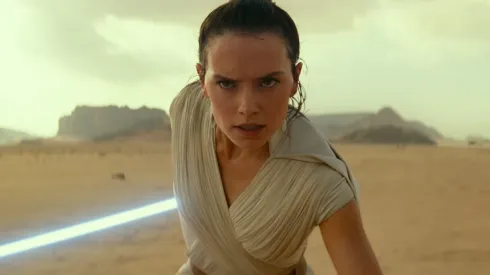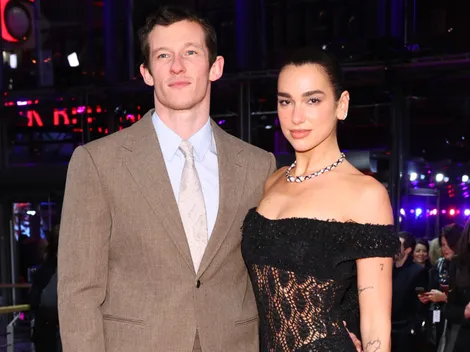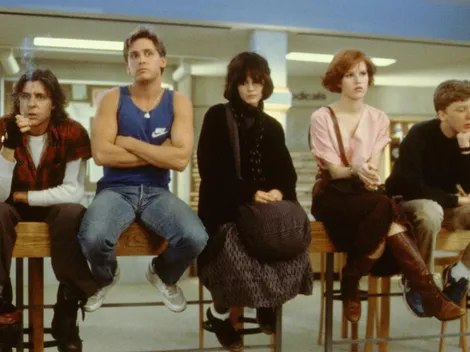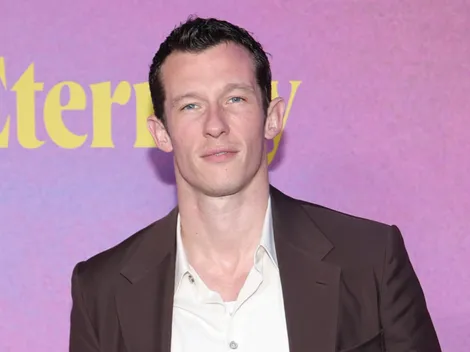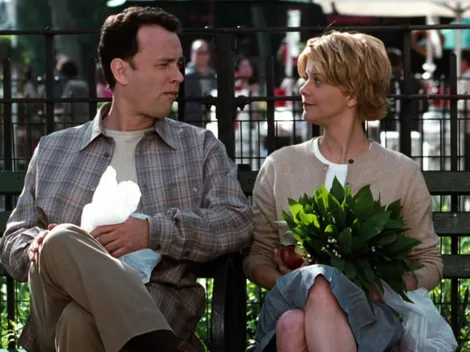Some franchises know exactly when to bow out, but others keep pushing long after the story’s natural stopping point. From diminishing returns to repetitive plots, these are the franchises that might benefit from finally calling it a day.
The Matrix

Source: IMDb
The “Matrix” saga began as a groundbreaking fusion of cyberpunk philosophy and action, culminating with Neo’s sacrifice in “The Matrix Revolutions,” which brought the story’s central conflict to a powerful and definitive close.
Despite the Wachowskis’ early insistence that the trilogy was complete, Warner Bros. revived the franchise with “The Matrix Resurrections” in 2021, a film that struggled to justify its own existence beyond nostalgia and meta-commentary. Now, in a move that further blurs the line between closure and exploitation, a new installment is in development with Drew Goddard writing and directing, marking the first “Matrix” film not helmed by either Wachowski, though Lana will serve as executive producer.
Tron

Source: IMDb
The visually distinctive and influential “Tron” franchise struggles to justify its continuation beyond its niche appeal, as demonstrated by the disappointing commercial and critical reception of “Tron: Ares.”
While the original films offered groundbreaking visual aesthetics and a unique cyber-world known as The Grid, subsequent entries have often relied heavily on nostalgia and spectacular visuals without delivering a fresh, compelling narrative, often rehashing familiar “AI-gone-rogue” tropes and failing to connect with a wider modern audience.
Shrek

Source: IMDb
While the first two films cemented the “Shrek” series as a clever, subversive fairy-tale parody, the subsequent entries suffered from diminishing returns, struggling to find new ground for a character whose arc of self-acceptance was already complete.
Despite DreamWorks’ repeated declarations that “Shrek Forever After” would be the final chapter, the studio has continued reviving the franchise, with “Shrek 5” now slated for 2027 after years of delays and creative reshuffling. Though the original stars are returning, it’s hard to imagine what meaningful story remains to tell—especially when the “Puss in Boots” spin-offs have already carried the spirit of the series forward.
Star Wars

Source: IMDb
The cinematic core of the “Star Wars” saga reached its natural climax with the original trilogy and was later given a definitive, if divisive, nine-film arc. Yet the franchise shows no sign of slowing down, as Lucasfilm continues to expand the galaxy in every direction.
Following the success of its Disney+ series, several new films are in the works, including “The Mandalorian and Grogu,” directed by Jon Favreau, and “Star Wars: Starfighter,” directed by Shawn Levy and starring Ryan Gosling. Additional projects from James Mangold, Dave Filoni, and Sharmeen Obaid-Chinoy aim to explore the dawn of the Jedi, the New Republic era, and the creation of a new Jedi Order. While each promises fresh perspectives, the sheer volume of overlapping stories risks diluting the mythic essence that once made “Star Wars” timeless, turning a focused hero’s journey into an overextended universe where even the Force can feel stretched too thin.
Avatar

Source: IMDb
Despite its record-breaking success, the “Avatar” franchise faces a unique challenge, relying heavily on groundbreaking visual effects and immersive spectacle rather than deeply compelling character arcs.
James Cameron’s multi-decade plan for five films continues with “Avatar: Fire and Ash,” which completed filming years ago and will introduce a fierce volcanic clan known as the Ash People. Future installments—”Avatar 4″ and “Avatar 5″—are already in partial production, with Cameron teasing titles like “The Tulkun Rider” and “The Quest for Eywa,” and even a storyline that brings Neytiri to Earth. While the ambition is staggering, the extended timeline risks stretching audience engagement too thin; by the time this saga concludes, a generation may have passed between its beginning and end.
Toy Story

Source: IMDb
The original “Toy Story” trilogy delivered a complete emotional journey, ending perfectly with Andy passing his toys to Bonnie, a poignant closure on purpose, loyalty, and growing up. Though “Toy Story 4” was a strong film technically, it stretched Woody’s arc beyond its natural endpoint, separating him from his lifelong friends and softening the impact of the trilogy’s farewell.
Now “Toy Story 5,” written and directed by Andrew Stanton and scheduled for release in June 2026, will bring back Tom Hanks, Tim Allen, and the beloved gang, along with new cast members such as Anna Faris and Ernie Hudson. Yet the decision to extend the saga once more, without co-creator John Lasseter’s guiding vision, risks turning a perfectly concluded story into an ongoing cycle of reinvention, gradually diminishing the emotional finality that made “Toy Story” one of Pixar’s most resonant achievements.
Jurassic Park

Source: IMDb
The original “Jurassic Park” established a powerful cautionary tale about the ethical and scientific arrogance of resurrecting extinct life, delivering a classic blend of awe and horror that perfectly concluded its philosophical statement. The subsequent entries, particularly the films under the “Jurassic World” banner, have devolved into repetitive, high-concept monster movies that continuously escalate the scale of the threat, moving from a remote island to global crises involving genetically modified super-predators.
This constant expansion ends up normalizing the absurdity of dinosaurs existing in the modern world, undermining the scientific realism and thematic integrity of the original film’s core message about respecting the forces of nature.
Pirates of the Caribbean

Source: IMDb
After the original “Pirates of the Caribbean” trilogy delivered a complete story filled with adventure, heart, and mythic grandeur, the series has struggled to justify its continued voyage. Each new film has tried to recreate the magic through bigger set pieces and ever more tangled plots, while Jack Sparrow’s once-charming antics have grown into the franchise’s only remaining compass.
Development on a sixth installment continues, with producer Jerry Bruckheimer confirming two projects in motion: a full reboot written by Jeff Nathanson and another film centered on a new female lead with a script by Christina Hodson. Cast members like Orlando Bloom have shown interest in returning, and Johnny Depp has hinted he might consider reprising his role if the story feels right. Yet this ongoing effort to revive or reinvent the series underscores how far the franchise has drifted from the satisfying conclusion of its original trilogy, turning what was once a spirited high-seas saga into a perpetual search for a reason to keep sailing.
The Conjuring

Source: IMDb
The “Conjuring” universe grew from the chilling, reality-inspired investigations of Ed and Lorraine Warren into a sprawling web of spin-offs exploring haunted objects and demonic entities like Annabelle and Valak. While the mainline films have generally preserved a stronger sense of craft and atmosphere, the rapid expansion into loosely tied supernatural stories has weakened the impact of the original’s grounded, faith-based horror.
Still, the franchise continues to evolve. “The Conjuring: Last Rites,” released in September, was designed as a narrative finale for the Warrens’ saga, marking the end of the franchise’s first phase. Yet, New Line Cinema has already confirmed a second phase of interconnected films, beginning with a prequel exploring the Warrens’ early cases. Additional projects are reportedly in the works, including a possible “Crooked Man” revival and spin-offs focused on other cursed artifacts. Although the series shows impressive longevity, its ongoing expansion could dilute the emotional weight and authenticity that once made “The Conjuring” a modern horror classic.
Scream

Source: IMDb
The “Scream” franchise reinvented the slasher genre with razor-sharp self-awareness, blending genuine terror with clever commentary on horror clichés. Yet over time, its sequels and reboots have increasingly recycled the same formula, introducing new killers, new rules, and another masked Ghostface, trapping its once-fresh concept in a cycle of diminishing tension.
Despite creative fatigue, the series continues to evolve. After the success of “Scream” and “Scream VI,” Paramount confirmed “Scream 7,” with original screenwriter Kevin Williamson returning as director. Neve Campbell, Courteney Cox, and David Arquette are all set to reprise their iconic roles, alongside new cast members who will extend Sidney Prescott’s legacy. While fans welcome the return of familiar faces, the ongoing expansion of “Scream” raises the question of whether the series can still surprise or if it is destined to keep analyzing its own mythology instead of redefining the genre once again.
